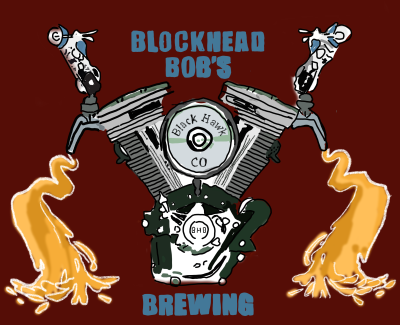Homebrew Recipe
Gustrower Kniesenack
- Method:
- Partial Mash
- Style:
- Specialty: Historical Beer
- Boil Time:
- 75 min.
- Batch Size:
- 5 gal.
- Boil Size:
- 6.5 gal.
- Efficiency:
- 65
- Rating:
- Source:
- Brew Your Own
- Source Notes:
- November 2019, Vol. 25, No. 7 page 72. Part of "Extinct German Styles" brew special. This beer originated in the small town of Gustrow in the northeastern German state of Mecklenburg-Vorpommern. One of the oldest references to the brew is in a 1624 pamphlet by an anonymous author. Apparently, kniesenack was a beer reserved for society's upper crust. The grain in a kniesenack mash was "good, well-prepared barley malt dried on the floor by smoke." It was then "ground, but not very fine - otherwise the beer would not run and the kniesenack would not be clear - and then, the mash [was] well cooked, well stirred, and rinsed through and then again cooked well and rinsed through." According to a document from 1856, which is in the archives of the Grand Duchy of Mecklenburg, the "bright, clear, tasty" kniesenack reached its glorious peak during the Thirty Years War (1618-1648), when it not only delighted the troops of the Holy Roman Empire defending Gustrow, but also those of the Swedish king, who subsequently sacked and plundered the town. To a modern brewer, the brew house process sounds very much like two sequential, full-mash decoctions of the same grain bed with two rounds of batch sparging. The sources also suggest that kniesenack was a poorly hopped, high-gravity brew made from well-kilned and slightly smoky to partly roasted barley malts. This is a very balanced strong beer with a snow-white, very tall and sturdy head - obviously the result of the large amount of floor malts. The color resembles that of a Bavarian dunkel, but with an appealing burgundy hue. The malty bouquet is very complex with faint notes of honey, herbs, and strawberry. On the palate, the beer impresses with an extremely pleasant mix of smoke and warming alcohol leading into a noticeable residual sweetness in the finish. Overall, this "fine and gentle" kniesenack is reminiscent of barrel-aged whiskey.
- Notes:
- Place crushed grains in a large stock pot. Dough-in with 4.3 qts. of water at 107F to stabilize mash at 95F, then raise temperature to 144F. Stirring while heating will help prevent potential scorching of the grains. Rest 30 minutes and then raise temperature to 154F; rest 20 minutes; raise temperature to 162F; rest 20 minutes; raise temperature for mash-out to 172F. Dump grains into a large muslin bag and separate from the wort by placing in a large colander and washing with 1 gallon of hot water. Top off to 6.5 gallons then while off heat, stir in the dried malt extract. Once all the extract is dissolved, return wort to heat and bring to a boil. Boil 75 minutes, adding hops as indicated. When the boil is complete, whirlpool for 15 minutes and then cool to 66F into an open fermenter. Package when terminal gravity of 1.014 is reached.
Brew Numbers
| OG | FG | ABV | SRM | IBU |
|---|---|---|---|---|
| 1.076 | 1.014 | 8.1 | 18 | 15 |
Fermentables
| Name | Amount | % Grain Bill |
|---|---|---|
| Pilsen Dry Malt Extract | 7 lbs. | 69.83 |
| Smoked Malt | 2.65 lbs. | 26.43 |
| Notes: Weyermann Beech-Smoked Barley malt (rauchmalz) | ||
| Chocolate Malt | 0.375 lbs. | 3.74 |
| Notes: Calls for 6 oz. Weyermann Carafa II malt | ||
| Total: | 10.03 lbs. | |
Hops
| Name | Amount | Boil Time | Use | AA |
|---|---|---|---|---|
| Tettnang (GER) | 0.75 oz. | 60 | Boil | 4.5 |
| Notes: 3.4 AAU Tettnanger hops | ||||
| Name | Amount |
|---|---|
| Tettnang (GER) | 0.75 oz. |
Yeast
| Name | Lab | Product |
|---|---|---|
| Koln Kolsch Style Ale | Lallemand | |
| Notes: Or a clean German ale yeast. | ||
| SafAle | Fermentis | K-97 |
| Notes: Or a clean German ale yeast. | ||
Mash Steps
| Step | Name | Temp | Time | Type |
|---|---|---|---|---|
| 1 | Partial Mash | 95 | 5 | Partial |
| Notes: Place crushed grains in a large stock pot. Dough-in with 4.3 qts. of water at 107F to stabilize mash at 95F. | ||||
| 2 | Partial Mash | 144 | 30 | Partial |
| Notes: raise temperature to 144F. Stirring while heating will help prevent potential scorching of the grains. Rest 30 minutes. | ||||
| 3 | Partial Mash | 154 | 20 | Partial |
| Notes: Raise temperature to 154F; rest 20 minutes. | ||||
| 4 | Partial Mash | 162 | 20 | Partial |
| Notes: Raise temperature to 162F; rest 20 minutes. | ||||
| 5 | Mash-Out | 172 | 10 | Partial |
